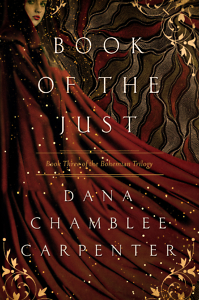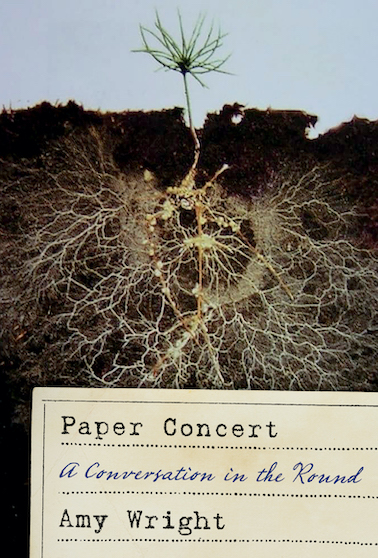Gods and Angels and Demons
Dana Chamblee Carpenter ends her Bohemian Trilogy and settles the fate of Satan’s daughter
Early in Book of the Just, the final volume of Dana Chamblee Carpenter’s Bohemian Trilogy, the book’s protagonist, Mouse, thinks back to the last time she saw her father. It’s not a happy memory—Mouse has no happy memories of her father because her father is the Devil, literally. But this memory is both unpleasant and murky: in it her father is trying to kill her. Suddenly her muddled memory clears and she remembers his last words before she lost consciousness: “There is good news,” he says. “It seems I finally have what I want. And you have a brother.”

This recollection fills Mouse with both elation and fear—elation at the realization that she has a sibling and fear at what her father might do to him. She vows to find the child and protect him at all costs.
Mouse is a 700-year-old half-human who is on the run with her lover, Angelo, a former priest, from some very bad people who know who she is and what she can do. She’s also keeping her distance from Dad, for obvious reasons. Mouse has supernatural powers but tries not to use them—that’s been her philosophy ever since she accidentally killed thousands of soldiers on a battlefield during the Middle Ages. Two years earlier, however, she was forced to use her power to save Angelo from a mob of demons, and “Mouse could still feel it inside her, tickling, dancing,” Carpenter writes. “Or was it just waiting for a chance for something more?”
Before Mouse can figure out how to find her brother and remove him from her father’s clutches, she and Angelo suffer a tragedy that leaves her questioning everything she’s ever believed in. Forced to accept aid from her father, she is also forced to confront the part of her identity that she has long tried to suppress: “Mouse was done pretending to be something she wasn’t. She knew, now, what she really was. Not good. Not a teacher. Not a healer. Not a girl, nor a woman either. Not human. Not loved. She was her father’s daughter, immortal, a demon. And the world could accept her or not—she didn’t care anymore.”
 Carpenter has created a fascinating world filled with “gods and angels and demons and immortals,” as Angelo describes it. A world in which an ancient artifact—a cursed amulet, a shard of bone, plates of gold, a holy staff, or a magical book—can either maintain the balance between good and evil or bring about the end of the world. Adversaries range from a ruthless Catholic bishop—the leader of a secret society obsessed with fighting evil by any means—to a wealthy, power-hungry Reverend and his mad wife who seek to twist the end of days into an opportunity to make over the world to their own advantage.
Carpenter has created a fascinating world filled with “gods and angels and demons and immortals,” as Angelo describes it. A world in which an ancient artifact—a cursed amulet, a shard of bone, plates of gold, a holy staff, or a magical book—can either maintain the balance between good and evil or bring about the end of the world. Adversaries range from a ruthless Catholic bishop—the leader of a secret society obsessed with fighting evil by any means—to a wealthy, power-hungry Reverend and his mad wife who seek to twist the end of days into an opportunity to make over the world to their own advantage.
And then there’s Satan, a captivating and unpredictable character who, naturally, has his own nefarious plans for humanity. “The whole point of the tedious journey into parenthood,” Carpenter writes, “had been to give himself the same advantage his adversary had claimed—an ally that could bridge the gap between the divine and human, someone in touch with his own humanity, someone who could use that shared humanity to compel the masses, to command an endless army of converts.”
The story moves at a breakneck pace from Australia to Austria, Jordan to the Czech Republic, Russia to Ethiopia, Egypt to Italy, as Mouse and Angelo search for the tools they need to thwart Satan’s plans, defeat their opponents, and save the innocent. Fans will likely find this final journey—full of twists and surprises—a wickedly good read.

A graduate of Auburn University, Tina Chambers has worked as a technical editor at an engineering firm and as an editorial assistant at Peachtree Publishers, where she worked on books by Erskine Caldwell, Will Campbell, and Ferrol Sams, to name a few. She lives in Chattanooga.


